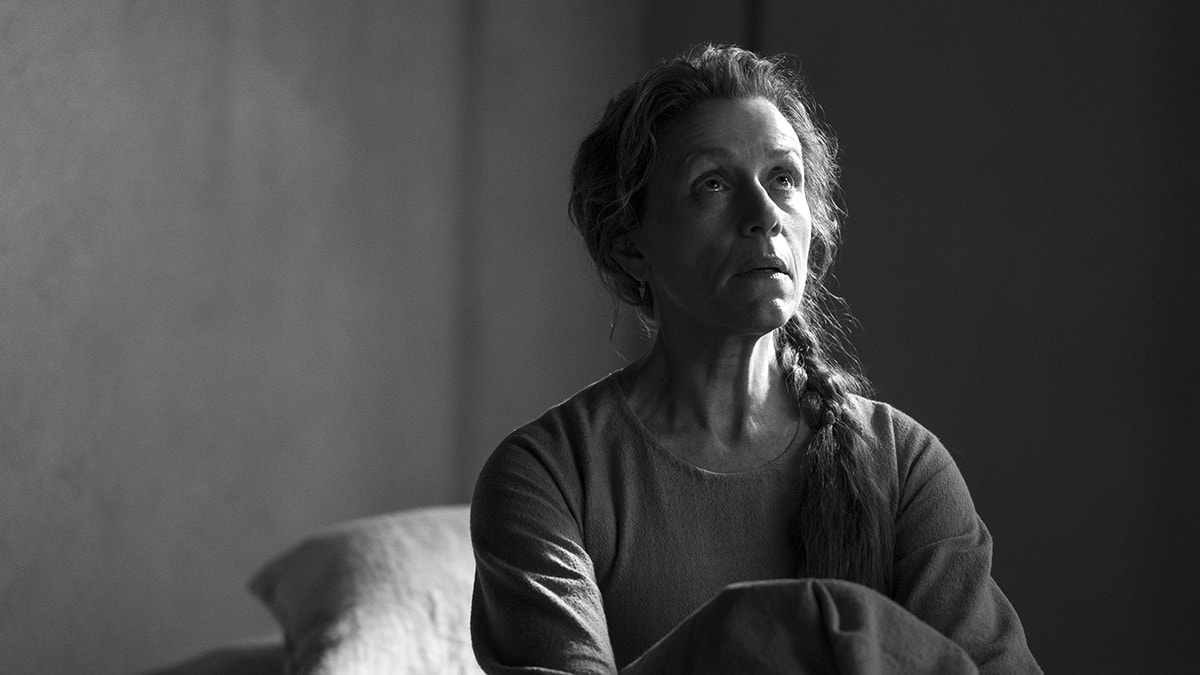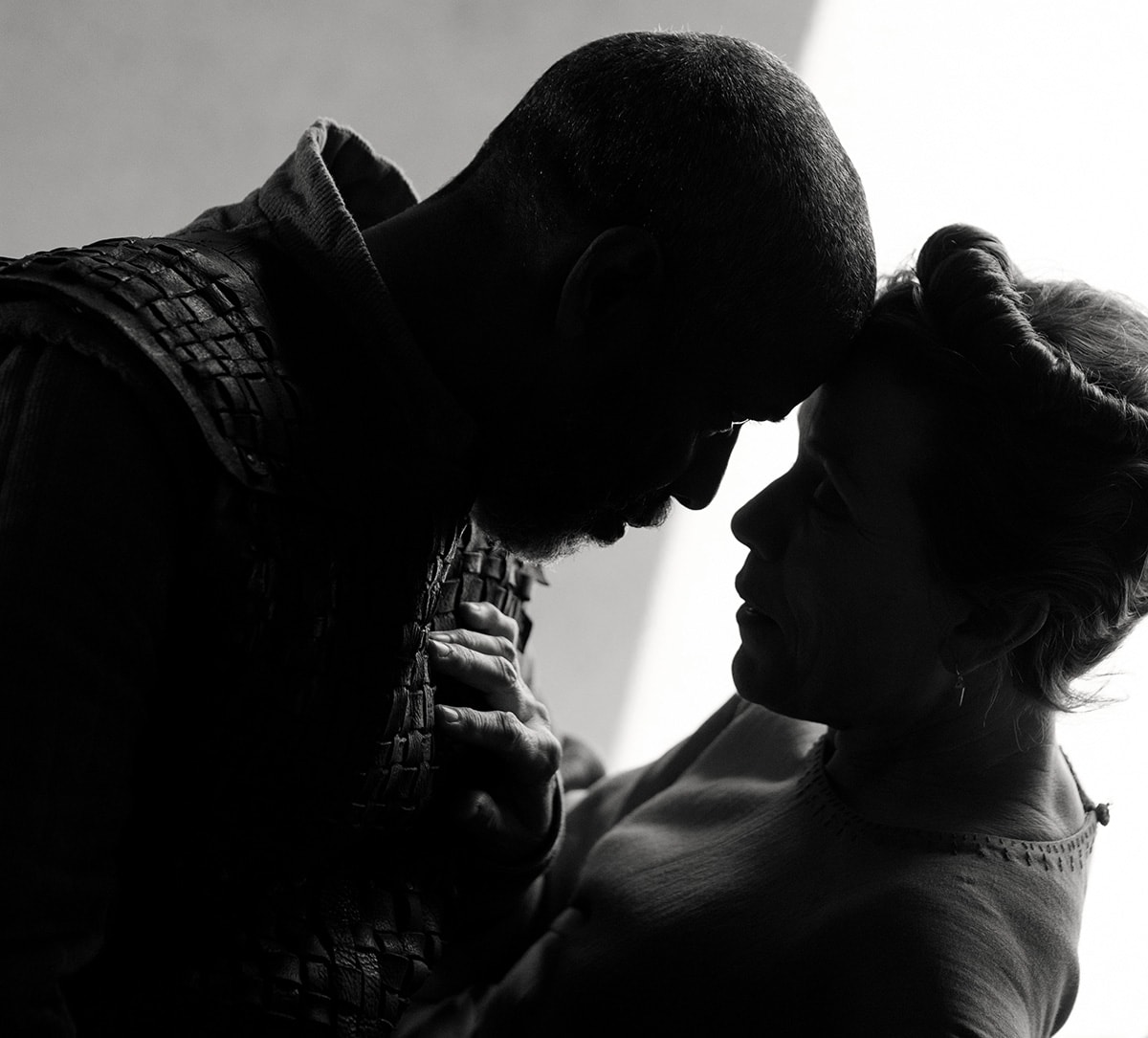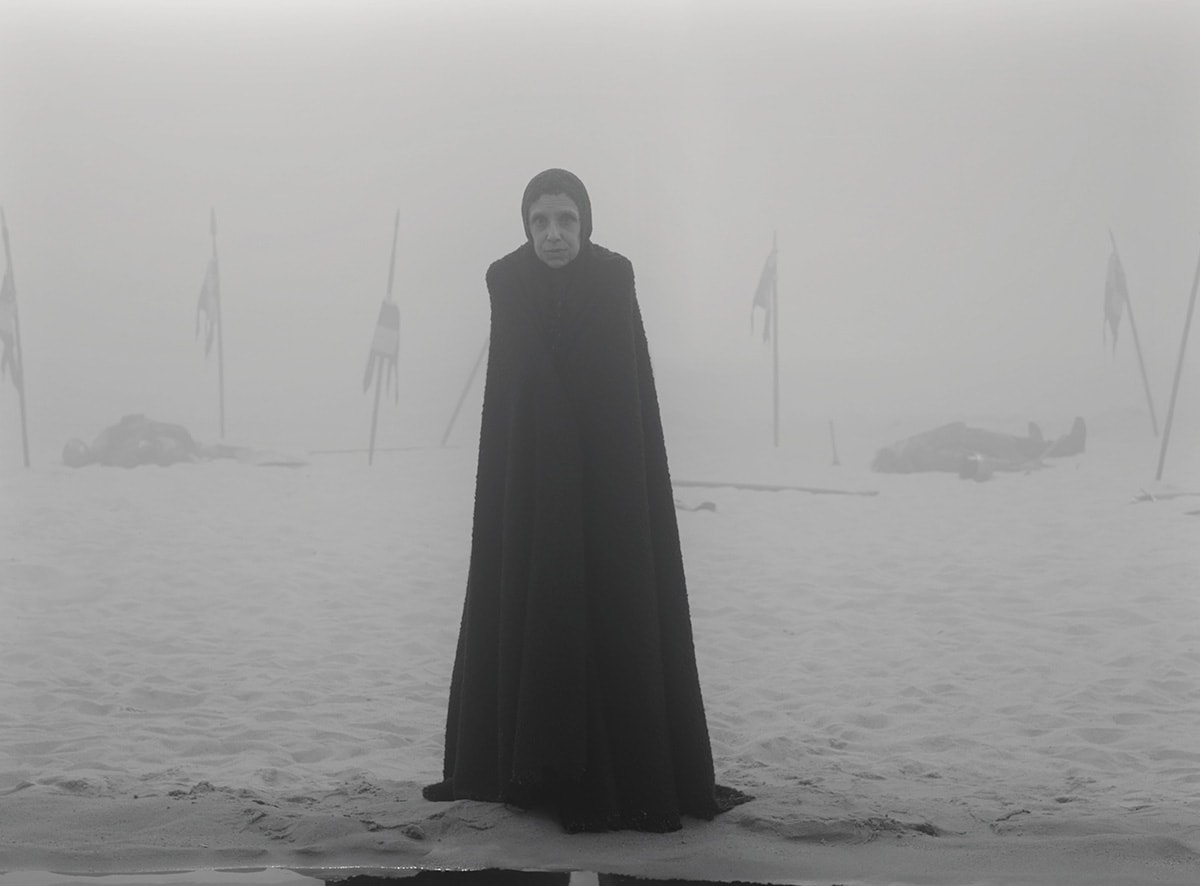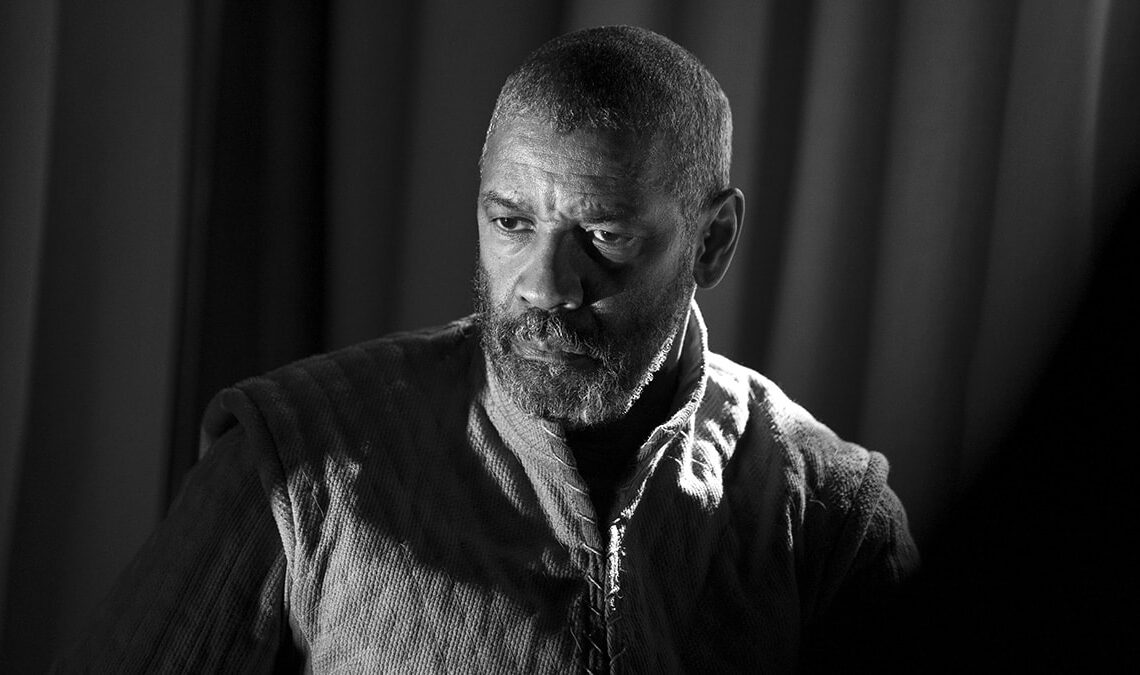Joel Coen (of the renowned filmmaking siblings) adapts the illustrious Shakespearian tale, Macbeth, in a stripped-back yet enthralling fashion in The Tragedy of Macbeth.
With original director Scott Rudin leaving the project in 2019, Joel Coen, mainly known as a screenwriter and co-director with his brother Ethan took the reins shortly after, acting as director and screenwriter of the film. This marks Joel’s first-ever solo theatrical feature, a surprising fact considering his lengthy and prosperous career. He called on some of his previous collaborators for this movie in Harry Melling and Frances McDormand.

The absolute best thing about this film has to be the eye-watering cinematography paired with the top-class set design and art direction. Every single frame of this film feels alive and within the period that the original text is set. The minimalist and brutalist look to the sets and locations give off an otherworldly feel to the film that has not been seen in a Shakespeare adaptation before. Dare we say, this may be one of the most visually faithful Shakespeare films ever.
It is no exaggeration to say that The Tragedy of Macbeth is a visual masterpiece. Joel Coen and DOP Bruno Delbonnel, who has worked on some stunning indie films in the past, such as Amelie (2001) and Inside Llewyn Davis (2013), have crafted one of the best-looking films of recent memory. Nothing really compares to this film’s visual style, at least not anything that has come out recently. A close comparison would be 2019’s The Lighthouse (another A24 production), which also employs a period-accurate black-and-white look with gorgeous results.

Every actor in this film gives one-hundred-per cent. While Denzel Washington may not have been everyone’s first choice to play the titular Lord Macbeth, he provides an overwhelmingly grand performance, leaning heavily into the character’s eventual descent into madness and tyranny. Frances McDormand is also very good here, delving into the madness that succumbs her and her husband. However, while one can appreciate her performance, her characterisation is nowhere near the level that it should be. She feels like an outsider, not involved with the plot in any meaningful way, and while this is somewhat faithful to the text, it is completely narratively unsatisfying in film.
One of the film’s issues is its omissions for time and pacing’s sake. A lot of the character work around the middle of the text exploring insanity and one’s mental rot after succumbing to guilt is not explained or explored here in any tangible way. Every time it seems like something is going to happen to benefit or add to the elements mentioned above, it is swept aside very quickly in favour of some photographic eye candy.

In regards to pacing, The Tragedy of Macbeth jumps all over the place. While it may be a suitable excuse to say that the original text had similar issues, this is a film adaptation and an adaptation that takes the risks it does regarding omitted content. One may feel Joel Coen focuses on the wrong element for too long or not long enough, making the film feel rushed and painfully slow. This is felt harshly at the end, which, after lots of buildup, ends far too quickly, leaving a lot of loose ends and threads that have yet to be settled.
Despite these issues, there is no doubt that this is a masterwork in many areas. The film’s look, tone, feel, acting, and soundtrack makes The Tragedy of Macbeth a theatrical experience that crowds won’t soon forget. The pace could be improved, and the characters needed work, but overall this is a fine piece of filmmaking that deserves to be seen on the big screen.
Fun Fact:
The ninth collaboration between director Joel Coen and his wife Frances McDormand.




COMMENTS